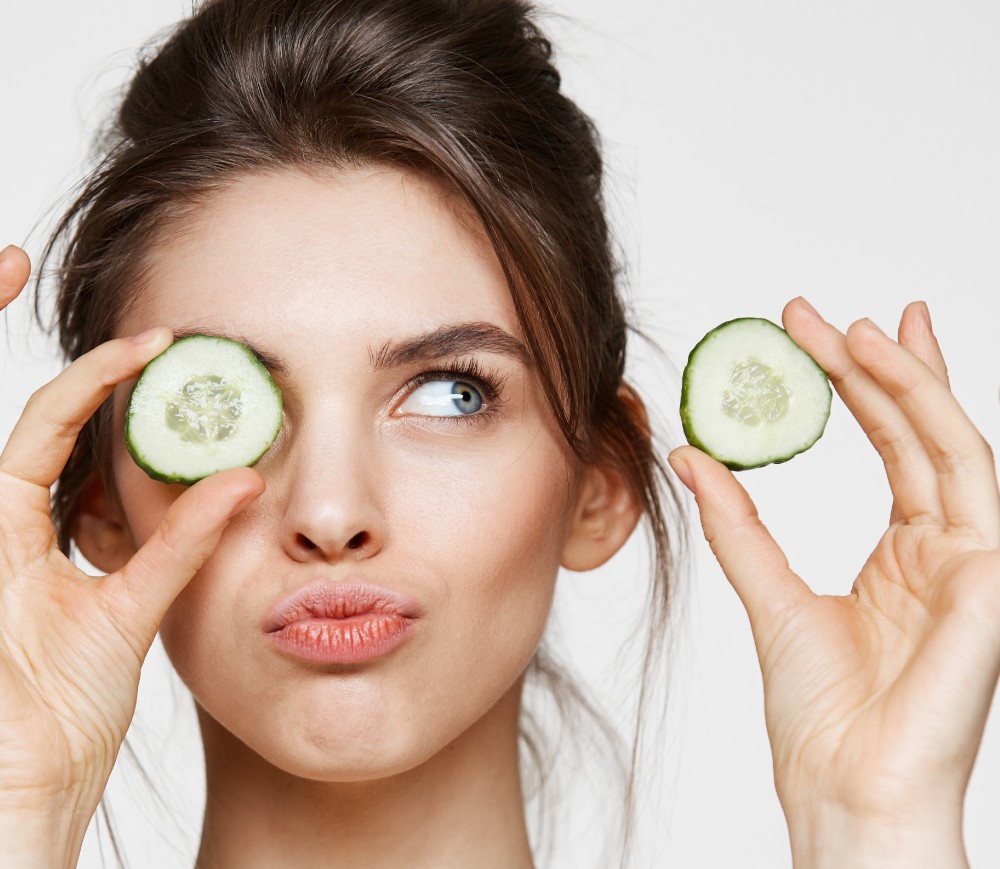Yudoyu hosts a curated selection of the high-efficacy Indie brands – all of which must meet our strict integrity standards.

Safe (for ALL Creatures) Shopping
Cruelty-free means products are not tested on animals (no guinea pigs, rabbits, rats, or other creatures are used to try skincare products). Instead, our hosted brands commit to testing their products only on compensated human volunteers.
Only CLEAN Ingredients
Yudoyu expects hosted brands to avoid using ingredients from the Yudoyu “FREE OF” list and share in the broader mission to create safer, more sustainable, ethical, and transparent products. Brand partners agree to:
- Ingredient names – official and universally understandable
- Ingredient composition, purity, and sourcing – documentation available upon request
- Safe for you – product safety and stability tested (only on human volunteers)
- Ingredient claims – back them up with clinical data
- Fragrance transparency – categorizing the type of fragrance and disclosure all fragrance ingredients

Yudoyu “Free of” List
Aluminum Powder
Elemental aluminum is the third most abundant element on earth. It occurs in various sources, including drinking water, pharmaceuticals, vaccines, and consumer products. Aluminum can also form as salts or oxides. The toxicity of different aluminum forms depends mainly on its relative solubility in water and the pH range. In addition, aluminum compounds appear to be poorly absorbed by the human body. Still, elemental aluminum is a known toxicant at high doses. Therefore, we avoid aluminum powder from all products.
Clarifying note: Aluminum oxide (aka alumina), aluminum hydroxide, and related compounds are permitted as functional ingredients in products. Unlike elemental aluminum or aluminum salts, aluminum oxide or its hydrated form, aluminum hydroxide, are essentially insoluble in water (at or near neutral pH); therefore, exposure to aluminum through cosmetics is negligible because of poor bio-accessibility through the skin. The EU, Canada, Japan, and the US have not restricted using these ingredients in cosmetics but have also not determined them “safe.” Few ingredients are safe since there is a lack of data on most of them, and not all routes of exposures are the same.
Animal By-Products
Animal Oils (except for Lanolin), Animal Musks, and Animal Fats are prohibited.
Butylated Hydroxy Anisole and Butylated Hydroxytoluene (BHA & BHT)
Synthetic antioxidants extend shelf life. However, they are likely carcinogens and hormone disruptors and may cause liver damage.
Chemical Sunscreens
Some chemical sunscreens cause hormone disruption. Others, like Avobenzone, appear safer but remain understudied. Chemical Sunscreens include Benzophenone; Diphenylmethanone; Diphenyl Ketone; 119-61-9; Benzoylbenzene; Phenyl Ketone; Oxybenzone; 2-Hydroxy-4 Methoxybenzophenone; 131-57-7; Benzophenone-3; (2-Hydroxy-4-Methoxyphenyl), and Octinoxate.
Cyclic Silicones
Cyclic silicones include Cyclopentasiloxane (D4), Cyclopentasiloxane (D5), Cyclopentasiloxane (D6), and Cyclomethicone. Data indicates that some of these chemicals may have reproductive, developmental toxicity, and endocrine disruption concerns. They are also persistent in the environment and may build up in the food chain.
Ethylenediaminetetraacetic Acid (EDTA)
A chelating (binding) agent is added to cosmetics to improve stability. It may be toxic to organs.
Ethanolamines
These ingredients (including DEA/TEA/MEA/ETA) may contain chemicals like Nitrosamines linked to cancer. In addition, surfactants and pH adjusters are linked to allergies, skin toxicity, hormone disruption, and inhibited fetal brain development.
Ethoxylated Ingredients
These synthetically produced ingredients use Ethylene Oxide, a known carcinogen. 1,4-Dioxane, another carcinogen, often contaminates the Ethoxylated elements, but 1,4-Dioxane itself doesn’t appear on ingredient labels. To avoid Ethoxylated compounds, look for these common ingredients listed on labels (although more exist too):
- Ceteareth-20: This is the Polyethylene Glycol Ether of Cetearyl Alcohol and may contain potentially toxic impurities such as 1,4-Dioxane
- Emulsifying wax: This is usually a blend of Cetearyl Alcohol and Polysorbate 60 or Ceteareth-20
- PEGS, including PEG (Polyethylene Glycol) compounds, like PEG-100 Stearate, PEG-7 Glyceryl Cocoate, PEG-40, and related chemicals. (There are over 1000 PEG ingredients listed in the International Nomenclature of Cosmetics Ingredients Database)
- Polysorbate-20, Polysorbate-40
- Steareth-20
- Sodium Laureth Sulfate (SLES), Ammonium Laureth Sulfate, and most ingredients ending in “-eth”
Formaldehyde
Although typically not listed as an ingredient, Formaldehyde “releasers” or “donors” often are listed on ingredient labels. These ingredients likely have a presence of Formaldehyde and are prohibited by Yudoyu:
- Dmdm Hydantoin
- Diazolidinyl Urea
- Imidazolidinyl Urea
- Tosylamide/Formaldehyde Resin
- Quaternium-15
- Sodium Hydroxymethylglycinate
- 2-Bromo-2-Nitropropane-1,3-Diol
- Polyoxymethylene Urea
- 5-Bromo-5-Nitro-1,3 Dioxane
- Glyoxal
- Methenamine
- Benzylhemiformal is a known carcinogen linked to asthma, neurotoxicity, and developmental toxicity.
Hydroquinone
A skin-lightening chemical that inhibits melanin production and may cause cancer, organ toxicity, and skin irritation.
Methyl Cellosolve or 2-Methoxyethanol
This ingredient is banned in the EU; it’s a solvent used as an additive in perfumes. It can cause skin irritation and may cause effects on the central nervous system, blood, bone marrow, kidneys, and liver.
Methylchloroisothiazolinone and Methylisothiazolinone
A chemical preservative that irritates and causes skin allergies.
Oxybenzone
Sunscreen agents and ultraviolet light absorbers may cause irritation, sensitization, allergies, and possible hormone disruption.
Parabens (methyl-, isobutyl-, propyl- and others)
These preservatives prevent the growth of bacteria and mold. In addition, parabens are endocrine (or hormone) disruptors, which may alter important hormone mechanisms in our bodies.
Petrolatum and Paraffin
Petrolatum is a semisolid mixture derived from processed petroleum.
Mineral Oil, Paraffin Wax, Liquid Paraffin, and several other ingredients are petroleum distillation byproducts.
The concerns with these ingredients are unsustainable sourcing and possible PAH contamination. In addition, PAHs (which stands for Polyaromatic Hydrocarbons) may cause cancer.
Note: Yudoyu encourages brands that use natural ingredients and no petroleum-derived ingredients.
Phthalates (DBP, DEHP, DEP and others)
These plasticizing chemicals make products pliable or make fragrances stick to the skin. In addition, phthalates disrupt the endocrine system and may cause congenital disabilities.
Polyethylene Glycol (PEG compounds)
PEGs are cosmetics thickeners, solvents, softeners, and moisture carriers. Depending on manufacturing processes, PEGs contain potential carcinogens ethylene oxide and 1,4-dioxane.
Resorcinol
Hair dyes contain Resorcinol, and it’s linked to a host of issues, including allergies, irritation, and hormone disruption.
Retinyl Palmitate (Vitamin A Palmitate)
Retinyl palmitate is an ingredient composed of palmitic acid and retinol (Vitamin A). Data indicate that retinyl palmitate causes adverse health consequences like lesions and photosensitization. FDA, Norwegian, and German health agencies have concerns that daily skin application of vitamin A creams may contribute to excessive vitamin A intake for pregnant women and other populations.
Sodium Lauryl Sulfate and Sodium Laureth Sulfate (SLS and SLES)
SLS and SLES are surfactants that can cause skin irritation or trigger allergies. SLES often contain 1,4-dioxane, a byproduct of a petrochemical process called ethoxylation, used to process other chemicals to make them less harsh.
Synthetic Flavor or Fragrance
Engineered scents or flavoring agents may contain any combination of 3,000-plus stock chemical ingredients, including hormone disruptors and allergens. Fragrance formulas are protected under federal law’s classification of trade secrets and therefore can remain undisclosed.
Toluene
A volatile petrochemical solvent that is toxic to the immune system and can cause congenital disabilities.
Triclosan and Triclocarban
Antimicrobial pesticides are toxic to aquatic environments; may also impact human reproductive systems.
Our Footprint is Small
reduce packaging
Your products are shipped directly from the supplier, eliminating the need for an additional fulfillment center. We also work with our brand partners to ensure that packing solutions are eco-friendly.
cleaner water
Residual beauty ingredients end up in the water supply when you wash your face. Our commitment to clean, non-toxic ingredients ensures that what goes down the drain does not harm wildlife in local waterways.
recycling program
Think of millions of little beauty jars, tubes, caps, and pumps heading for the trash or ocean. Yudoyu has partnered with Pact Collective to offer an easier way for you to help. LEARN MORE.
Full-Circle. Our mission is to reduce waste by looking at the entire life cycle of the brand with awareness.
Waste not, want not:
One of the VERY COOL things about yudoyu is that we take away the guesswork. When you are matched with highly effective products that are compatible with your skin’s DNA, you will use ALL of each product! Instead of products ending up at the bottom of a drawer and eventually, down the drain or in the garbage, all of it goes to a good cause… YOUR SKIN. This eliminates unnecessary buying, packaging, shipping, etc… helping to eliminate each of our customers’ individual footprints.
Yudoyu only works with companies that prioritize sustainability:
- Ingredient transparency
- 98% Vegan offerings
- Clean ingredients that won’t harm the earth, local waterways, or wildlife
- Clean sourcing
- Non-GMO
- Zero-waste wherever possible
- Earth-conscious product manufacturing
- Source upcycled ingredients whenever possible
Hosted brands are required to use sustainable packing methods:
- All packing slips are digital
- Limited marketing materials
- Packing and filling materials are dissolvable, reusable, and/or recyclable
- Carbon neutral shipping whenever possible
Yudoyu ships directly from the brand source which means:
- No added warehousing or distribution center
- Reduced packing materials and energy use
Next Steps ~ Product Packaging:
Yudoyu is implementing a goal-based strategy to help our hosted brands take steps toward specific standards designed to reduce the use of single-use items, virgin plastic, and non-recyclable materials. The plan will introduce them to best practices from packaging design to end-of-life management, connect them with sustainable packaging suppliers, and encourage outside-of-the-box thinking.
Check back often with us to see how we are doing! Questions?
A PACT Collective Partner:
Yudoyu is a member of PACT, a non-profit collective creating more sustainable beauty packaging systems. They work to reduce, recycle, educate, innovate, and drive towards circularity.
- a collective of beauty industry stakeholders taking responsibility for our industry’s packaging.
- working towards larger, systemic solutions to reduce resource consumption and pollution.
- a take-back recycling program that also educates consumers and brands about making sustainably focused decisions.
- working with the community, for the community.
- not for profit.
